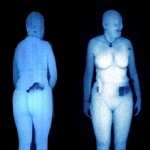 By now, most everyone has heard of the attempted bombing on Delta Flight 253 over the Christmas holiday. Not as many understand the changes the US government has implemented since this incident to make air travel safer. As someone who travels relatively frequently, I have a few thoughts about how we got here and where we are going.
By now, most everyone has heard of the attempted bombing on Delta Flight 253 over the Christmas holiday. Not as many understand the changes the US government has implemented since this incident to make air travel safer. As someone who travels relatively frequently, I have a few thoughts about how we got here and where we are going.
Focus People
Before I get to the current restrictions and my thoughts about them, I think it makes sense to understand how we got to this point. Let me see if I’ve got this scorecard correct:
- Person becomes radicalized at some point during their life and intends to detonate a bomb in an airplane over US soil.
- That person’s own father notifies the United States CIA to be on a lookout for this person. England revokes person’s Visa based on this information.
- Alleged terrorist purchases a one-way ticket, checking no bags, and uses cash for the transaction. Alleged terrorist passes through security/metal detectors and is allowed to board plane.
- One hour before landing, alleged terrorist attempts to detonate bomb. The bomb and/or alleged terrorist malfunction and nearby passengers beat and subdue him until the authorities arrive.
Okay – assuming I haven’t missed any of the facts – let’s recount the steps the US government took immediately after this event:
- Ban in flight GPS
- Eliminate all carry-ons, except for a single purse
- Not allow anyone out of their seat 1 hour prior to landing. For flights less than 2-hours, can’t get out of seat at all.
- Take all blankets, seat trays and electronic devices for the last 1 hour of flight.
Errr.. Really???? We have a massive intelligence failure here; the dude’s own father turned him in. He bought a one-way ticket with cash!! He checked zero bags!!! After all of this – the best thing the government could come up with is – “Sir – I’ll need your blanket for the remainder of the flight”?? I’m starting to understand why no one wants government run healthcare. FOCUS People!!!!
Snapshot of the New Rules
Thankfully, more thoughtful deliberations ensued, leading to revised airline security policies. All of the utterly dumb rules above have been rescinded. As of the time of this writing, here are the highlights of the new policy:
- Greater non-uniformed US Marshal presence on International flights
- U.S. citizens flying domestically may be selected at random for additional screening.
- U.S. citizens flying internationally may be selected at random for additional screening that may include some mix of a full-body pat-down, a whole-body scan, and an inspection of carry-on luggage by hand and with the use of explosives-detection technology.
- The number and type of allowed carry-on items has been restored to pre-incident levels.
- All Non-US citizens entering the US may go through enhanced screening – particularly those visitors originating from certain countries (those on the Terrorist Sponsors list, have and existing Travel Warning or other non-disclosed reasons).
- Non-uniformity of rule implementation. The theory here is experiencing different security mechanisms in different airports makes it more difficult for terrorist to plan their attacks.
- Greater intensity towards implementing ‘Whole Body Imaging’ machines – assuming the legitimate privacy, effectiveness and cost concerns are resolved.
Does this make us any Safer?
The first knee-jerk reaction restrictions where so utterly dumb and ineffective – I seriously strain to understand how these ideas even made into the public’s view. Seriously, turn off the in-flight GPS – while still offering In-Flight Internet access? Even on planes that don’t have Internet access – if the goal is to detonate in the US prior to landing – couldn’t the terrorist just… wait for it… look out the damn window???
Keystone Cops episode aside, the revised security measures provide a little more security for International travel to the US – particularly the increased US Marshal presence. To me, two key challenges have to be resolved to significantly increase US bound air travel safety:
- Better Intelligence – In this example, intelligence was gift-wrapped and not acted upon. The issues surrounding “connecting the dots” are being worked on and discussed ad nauseam, so I won’t go into any more detail here. It is unlikely the necessary intelligence will be that forthcoming in the future – so our ability to turn the vast amounts of intelligence data into actionable information will be crucial.
- Better Screening Technologies – In the world of chemical explosives, metal detectors are not enough. The ability to detect chemical materials and/weapons in a real-time manner is key. While the current crop of ‘whole body scanners’ are better than just metal detectors – they are slow, expensive and aren’t foolproof. Also, there are several privacy concerns about these machines.
So what does this all mean?
In the end, there is no practical way of making air travel 100% foolproof-completely safe. The key there is ‘practical’ – we could theoretically strip search every single passenger and hand check every single bag – but then no one will fly. There has to be a give and take between security and the rights of the traveler themselves. Over the next couple of months, we will see how far US citizens are willing to waive their personal freedoms for the prospect of increased safety.
In the short term, these changes mean longer security lines – especially for international travel. In addition, there will likely be an increase of random physical searches, potential for abuse of these ‘random’ searches and last but not least increased cost of flying. Expect another “Sept. 11” inspired fee to be tacked on to international travel.
Don’t take my thoughts as reason not to continue exploring the world – I for one will not let this change my travel plans one iota. What it will make me do is plan for the increased time necessary to get through security. Knowing what to expect should help make the entire experience less stressful.
Happy Travels!!!














